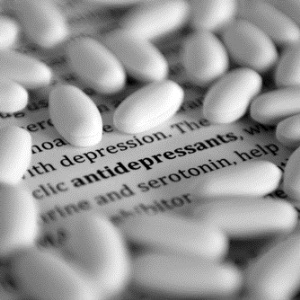
The first step is to ensure your safety if there’s a risk of self-harm. For this, hospitalisation may be required.
Secondly, a complete diagnostic evaluation must be carried out. It’s important to detect any underlying medical problems (e.g. thyroid disease), as these require separate, appropriate treatment.
Thirdly, an individualised treatment plan has to be formulated. This could include medication, psychotherapy, lifestyle changes, and assistance in managing your stressors.
The vast majority of people (between 80-90%) respond to treatment, and almost all depression sufferers who are appropriately treated will experience at least some symptom relief. Yet over 70% of South Africans don’t get assistance or treatment for depression.
Barriers to care include limited access to resources, lack of financial resources and the social stigma associated with mental disorders.
Note that medical treatment with antidepressants may take a couple of weeks to become effective. During this time, it’s strongly advised that you go for psychotherapy with a clinical psychologist.
Antidepressants
The medical treatment of depressive disorders has advanced considerably over the last 20 years and there are now a large number of medications to choose from. The list includes:
- Selective serotonin reuptake inhibitors (SSRIs), e.g. Prozac
- Serotonin and noradrenalin reuptake inhibitors (SNRIs), e.g. Venlor
- Reversible inhibitors of monoamine oxidase (RIMAs), e.g. Depnil
- Tricyclic antidepressants (TCAs), e.g. Trepiline
- Noradrenaline-serotonin specific antidepressants (NaSSAs), e.g. Remeron
- Noradrenalin reuptake inhibitors (NARIs), e.g. Edronax
- Monoamine oxidase inhibitors (MAOIs), e.g Parnate
- Serotonin antagonists and reuptake inhibitors (SARIs) e.g. Molipaxin
- Melatonergic agonists (MAs), e.g. Valdoxan
All antidepressants can be effective, providing an adequate dosage is taken for a sufficient period of time and provided that the drug is tolerated well. Different antidepressants may be prescribed for different individuals. This will depend on the person’s response to the medication. A decision is often also made on the potential for or past side effects.
Antidepressants don’t act rapidly – a certain dosage and concentration has to be reached before they become effective. They usually take 1-2 weeks to start to have an effect, and about a month before they have a full effect. In the elderly, antidepressants can take 2-3 months before they become effective. It’s important to persevere and to use the prescribed drug at the correct dosage for long enough.
Many people feel significantly better after 2-3 months on antidepressants, but it’s important to continue taking your medication for as long as your doctor advises. For a first episode of depression, this usually means taking medication 6-9 months on optimal dosage after symptom relief has been achieved, 2-5 years for a subsequent episode, and possibly lifelong if episodes recur frequently and are severe.
Stopping your medication too soon increases the likelihood of a relapse and the development of a chronic, recurring illness.
Psychotherapy
Psychotherapy, or “talk therapy”, involves a verbal interaction with a trained mental health professional. The aim is to enable you to gain insight into yourself and to change maladaptive thoughts, feelings and behaviours.
Research has shown that some forms of psychotherapy are as effective as medication in treating mild to moderate depression. Medication tends to bring about results more rapidly, but the benefits of psychotherapy may be more enduring.
It’s generally agreed that the best form of treatment is a combination of pharmacotherapy and psychotherapy. This is especially true for more severe forms of depression, such as major depressive disorder (MDD).
Cognitive behavioural therapy (CBT) and interpersonal therapy are the psychotherapy approaches that have been shown to be most effective in the treatment of depression.
Electroconvulsive therapy (ECT)
This type of therapy, which involves passing a carefully controlled electric current through the brain, is sometimes used in individuals with severe or resistant depression.
The response to ECT is generally good, with approximately 50% of medication-resistant individuals exhibiting a satisfactory response.
Treating other medical conditions
Many other conditions are associated with depression and may have to be treated as well. These include epilepsy, Parkinson’s disease, Alzheimer’s disease, hypothyroidism, hyperthyroidism, diabetes mellitus, and coronary artery disease.
Reviewed by psychiatrist Dr Matthew Mausling, Life Kingsbury Hospital, Claremont. October 2018.
Read more:




 Publications
Publications
 Partners
Partners











